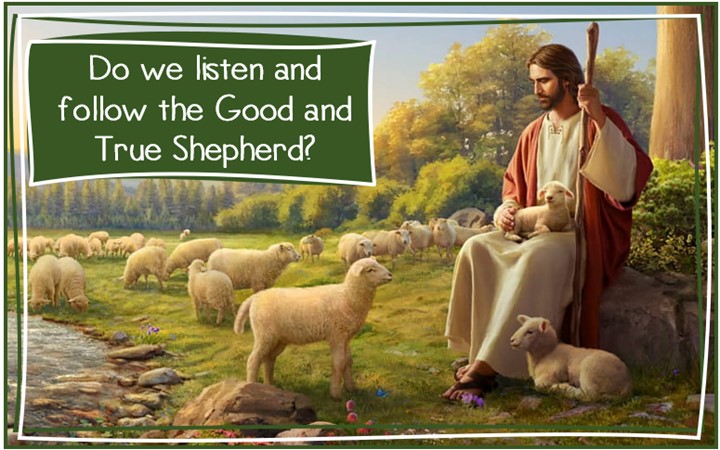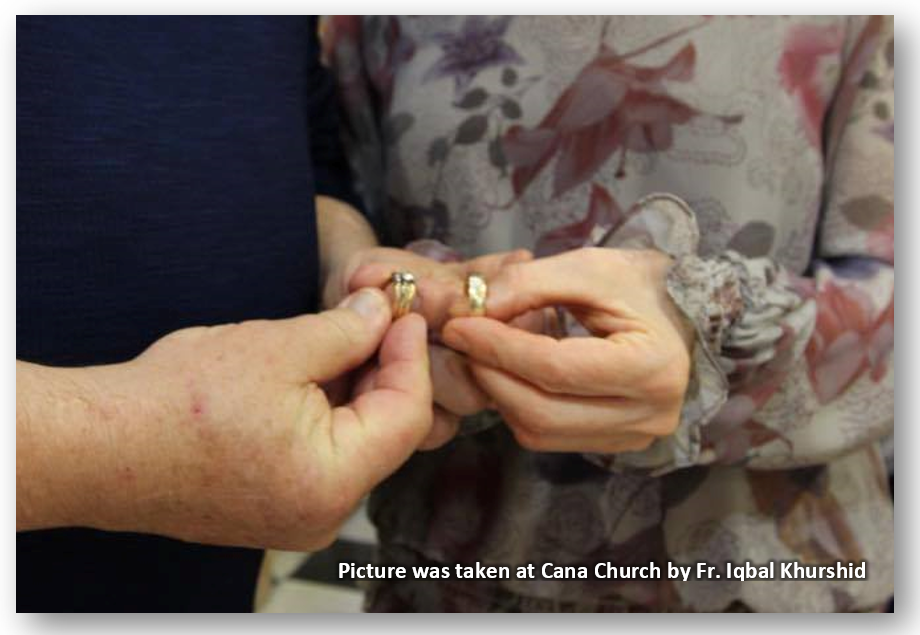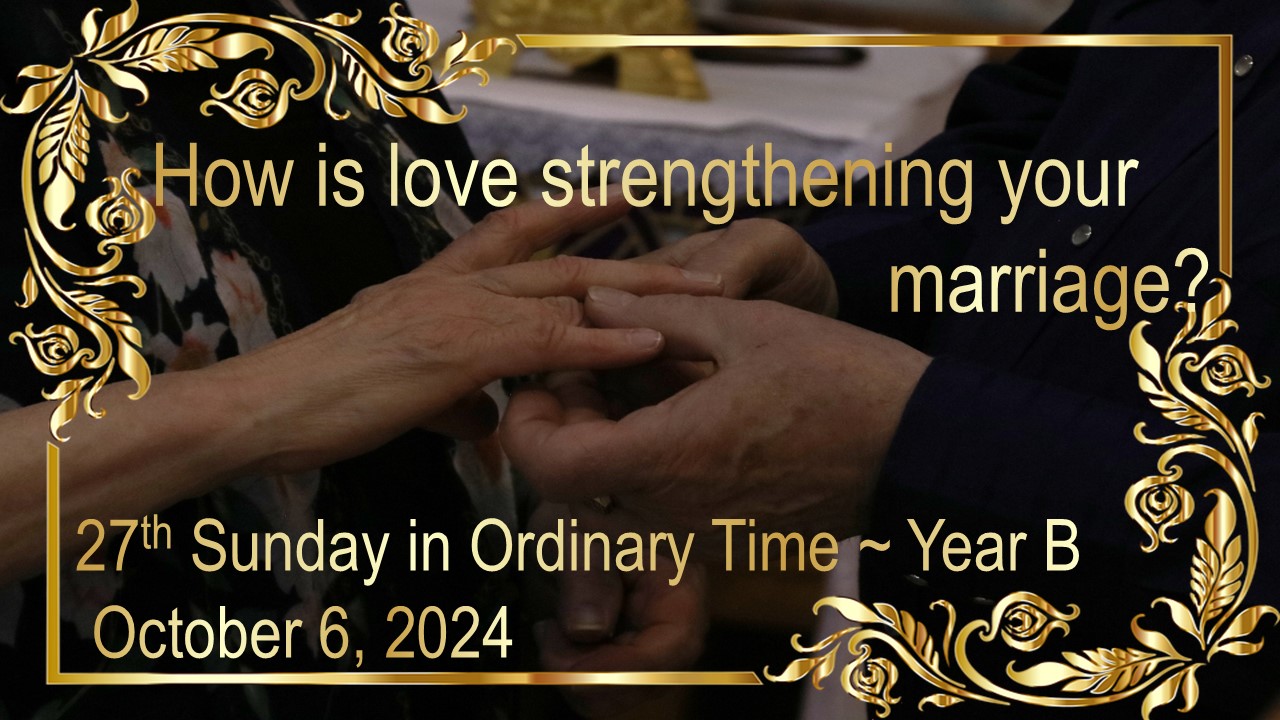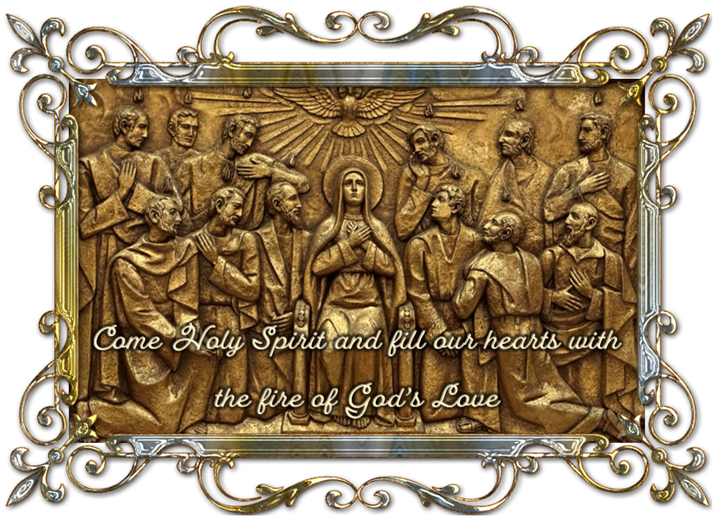
4th Sunday of Easter Year A ~ April 30, 2023
THE TRUE GOOD SHEPHERD
Every year fourth Sunday during Easter is celebrated as Good Shepherd Sunday to highlight the qualities and attributes of Jesus who is our Good Shepherd who died for his sheep. Last Sunday we reflected on the story of two disciples leaving Jerusalem with sadness and brokenness as they had witnessed the cruel death of the Saviour. They were walking with no hope as they took the long journey of rough roads. However, something unusual happened when they noticed that someone else was also walking with them. They involved him in the conversation as a stranger but that was the moment when they realized that their hearts were burning within them. I do believe in our sadness, brokenness and loneliness, the Lord walks with us to strengthen us.
We continue our faith journey to grow in a mutual relationship with the Lord during this Season of Easter. The Season of Easter is a season of cherishing the gift of life and mystery of resurrection. We sing the hymn of Alleluia because we believe He is truly risen from the dead. We are people of resurrection and that’s our song. This we are invited to reflect on the qualities of the Good Shepherd and also our relationship with the Good Shepherd.
St. Gregory the Great while reflecting on the qualities of the Good Shepherd, invites everyone to listen to his voice who keeps calling us to listen to his voice. “I am the good shepherd. I know my own— by which I mean, I love them — and my own know me. In plain words: those who love me are willing to follow me, for anyone who does not love the truth has not yet come to know it. My dear brethren, you have heard the test we pastors have to undergo. Turn now to consider how these words of our Lord imply a test for yourselves also. Ask yourselves whether you belong to his flock, whether you know him, whether the light of his truth shines in your minds. I assure you that it is not by faith that you will come to know him, but by love, not by mere conviction, but by action. John the evangelist is my authority for this statement. He tells us that anyone who claims to know God without keeping his commandments is a liar. Consequently, the Lord immediately adds: As the Father knows me and I know the Father; and I lay down my life for my sheep. Clearly, he means that laying down his life for his sheep gives evidence of his knowledge of the Father and the Father’s knowledge of him. In other words, by the love with which he dies for his sheep he shows how greatly he loves his Father.
Again, he says: My sheep hear my voice, and I know them; they follow me, and I give them eternal life. Shortly before this he had declared: If anyone enters the sheepfold through me, he shall be saved; he shall go freely in and out and shall find good pasture. He will enter a life of faith; from faith he will go out to vision, from belief to contemplation, and will graze in the good pastures of everlasting life.
So, our Lord’s sheep will finally reach their grazing ground where all who follow him in simplicity of heart will feed on the green pastures of eternity. These pastures are the spiritual joys of heaven. There, the elect look upon the face of God with unclouded vision and feast at the banquet of life for ever more. Beloved brothers, let us set out for these pastures where we shall keep joyful festival with so many of our fellow citizens. May the thought of their happiness urge us on! Let us stir up our hearts, rekindle our faith, and long eagerly for what heaven has in store for us. To love thus is to be already on our way. No matter what obstacles we encounter, we must not allow them to turn us aside from the joy of that heavenly feast. Anyone who is determined to reach his destination is not deterred by the roughness of the road that leads to it. Nor must we allow the charm of success to seduce us, or we shall be like a foolish traveler who is so distracted by the pleasant meadows through which he is passing that he forgets where he is going”.
Good Shepherd Sunday invites us each year to rediscover, with ever new astonishment, how Jesus defined himself, reading it again in the light of his passion, death, and resurrection. “The good shepherd lays down his life for the sheep”; these words are wholly fulfilled when Christ, freely obeying the will of the Father, is immolated on the Cross. The significance that He is “the Good Shepherd” thus becomes completely clear: He gives life, He offered his life in sacrifice for us all: for you, for you, for you, for me, for everyone! And for this reason, He is the Good Shepherd!
There was once a Shakespearean actor who was known everywhere for his one-man shows of readings and recitations from the classics. He would always end his performance with a dramatic reading of Psalm 23. Each night, without exception, as the actor began his recitation – “The Lord is my Shepherd, I shall not want. the crowd would listen attentively. And then, at the conclusion of the Psalm, they would rise in thunderous applause in appreciation of the actor’s incredible ability to bring the verse to life.
But one night, just before the actor was to offer his customary recital of Psalm 23, a young man from the audience spoke up. “Sir, do you mind if tonight I recite Psalm 23?” The actor was quite taken back by this unusual request, but he allowed the young man to come forward and stand front and center on the stage to recite the Psalm, knowing that the ability of this unskilled youth would be no match for his own talent. With a soft voice, the young man began to recite the words of the Psalm. When he was finished, there was no applause. There was no standing ovation as on other nights. All that could be heard was the sound of weeping. The audience had been so moved by the young man’s recitation that every eye was full of tears. Amazed by what he had heard, the actor said to the youth, “I don’t understand. I have been performing Psalm 23 for years. I have a lifetime of experience and training – but I have never been able to move an audience as you have tonight. Tell me, what is your secret?” The young man quietly replied, “Well sir, you know the Psalm… I know the Shepherd.”
Do we know the Good Shepherd? Do we listen to his voice as he listens to ours? And there are many other questions we can ask ourselves as we reflect on our call to serve the Lord. There are so many ministries in our Church we join to serve the Lord. He is a humble Good Shepherd who leads us into the green pastures and anoints with our head his own blood which he shed on the Cross to remind us that there is no greater love than to lay down one’s life for someone. Jesus being our Chief Shepherd invites each of us to play the role of a shepherd. How are we to shepherd our families, communities, and societies? Whenever I look at the media, I feel the world is losing hope and going under the deep and thick fog of fears.
Once nobody was on the beach before dawn. The shore was completely desolate, and a sailor was drawn to it with his own life being desolate. As he was trying to make good time, a sudden storm blew up off the coast. He tried to keep his boat stable but couldn’t keep the boat away from the notorious shoals that jutted out from the shore. He barely got himself to the life raft before everything else he owned—his clothes, his money, his livelihood as a sailor—was wrecked. All he had was a blanket some rescue workers gave him when he washed up shivering on the beach. His boat got wrecked into pieces however some people offered him their help to reconstruct his boat, but he refused because there was nothing left pay them for the work. Life was nothing but fear and hopelessness. What is the point of trying to start over anyway? he thought, gazing out at the ocean. He decided to come to the site of the wreck. He had strange feeling that he would find something here, but of course there was nothing left behind. Everything was gone.
Maybe that was not the real reason that he had come out here in the dark. In the morning he saw a splash in the water, a dolphin maybe, or even a whale. He got up from his place on the sand and walked toward it over the hard-packed mud. He got into the water to see but the water level started growing and by the time he came close to it he was completely submerged in the water and as he was about to sink, he heard someone calling his name. He looked around but there was no one. He struggled to come up from the water and saw a figure standing at the beach looking like a figure from the Bible but as he came closer, he saw a fisherman standing with his fishing gear. “Let me help you,” the fisherman said, keeping his voice very calm. He must have realized what he had just almost witnessed. “I can help you. Please. Let me help.” Help, he thought, but he could not say it. His teeth were chattering too badly to pronounce the words. He led the man to the beach and sat him down on a piece of driftwood. “You shouldn’t have pulled me out,” said the man. “I didn’t,” he said. He saw that the fisherman was right. He was not even wet. “You walked out of that water of your own free will. Or with the help of a power greater than yourself.” It was true. In that instant, he fully realized what he had almost done.
Isn’t it true that our Good and True Shepherd holds our hands and pulls us out of all problems and says “Come to me all that are weary and carrying heavy burdens and I will give you rest. However sometimes we lose our hope and trust in him. St. John reminds and warns us about our failure to trust and believe in God’s power: “I know your works, your toil, and your patient endurance. I know that you cannot tolerate evildoers; you have tested those who claim to be apostles but are not and have found them to be false. I also know that you are enduring patiently and bearing up for the sake of my name, and that you have not grown weary. But I have this against you, that you have abandoned the love you had at first. Remember then from what you have fallen; repent and do the works you did at first. If not, I will come to you and remove your lampstand from its place, unless you repent. Yet this is to your credit: you hate the works of the Nicolaitans, which I also hate. Let anyone who has an ear listen to what the Spirit is saying to the churches. To everyone who conquers, I will give permission to eat from the tree of life that is in the paradise of God” (Rev 2:2-7).
Today more than ever, we need to listen to the voice of God among all the voices of the world inviting us to abandon our faith and just be part of the world. Holy Father Pope Francis opens our hearts to listen to the voice of Good Shepherd who shows us the proper way to enter the sheepfold through the Door. “The fourth Sunday of Easter, which we celebrate today, is dedicated to Jesus the Good Shepherd. The Gospel says, “The sheep hear his voice, as he calls his own sheep, by name”. The Lord calls us by name, calls us because he loves us. But the Gospel then tells us, there are other voices not to be followed: those of strangers, thieves and robbers who want evil for the sheep. These different voices resonate within us. There is the voice of God, who speaks kindly to the conscience, and there is the tempting voice that leads to evil. How can we recognize the voice of the Good Shepherd from that of the thief, how can we distinguish God’s inspiration from the suggestion of the evil one?”
There is always freedom and free will for us to choose whatever is best for us (Please read Deuteronomy 30:9-20 & Sirach 15). We can learn to discern these two voices: in fact, they speak two different languages, that is, they have opposite ways of knocking on our hearts. They speak different languages. As we know how to distinguish one language from another, we can also distinguish the voice of God and the voice of the evil one. The voice of God never forces us: God proposes himself; he does not impose himself. Instead, the evil voice seduces, assails, forces: it arouses dazzling illusions, tempting emotions that are fleeting. At first it flatters us, it makes us believe that we are all-powerful, but then leaves us with emptiness inside and accuses us: “You are worth nothing”. God’s voice, on the other hand, corrects us, with so much patience, but always encourages us, consoles us: it always nourishes hope. The voice of God is a voice that has a horizon, instead the voice of the evil one leads you to a wall, it takes you to a corner. (Please read Jeremiah 17:5-14 & Psalm 100).
Another difference. The voice of the enemy distracts us from the present and wants us to focus on the fears of the future or the sadness of the past – the enemy does not want the present –: it brings back the bitterness, the memories of the wrongs suffered, of those who hurt us, so many bad memories. Instead, God’s voice speaks to the present: “Now you can do good, now you can exercise the creativity of love, now you can renounce the regrets and remorse that hold your heart captive.” It enlivens us, it brings us forward, but it speaks of the present: now!
Holy Father continues to say “In addition: the two voices raise different questions in us. What comes from God will be, “What is good for me?” Instead, the tempter will insist on another question: “What do I want to do?” What would I like: the evil voice always revolves around the self, its impulses, its needs, everything and immediately. It’s like the whims of children: everything right now. The voice of God, on the other hand, never promises cheap joy. It invites us to go beyond our self to find the true good, peace. Let us remember evil never gives us peace, it puts frenzy first and leaves bitterness after. That’s the style of evil.
Finally, the voice of God and that of the tempter, speak in different “environments”: the enemy prefers darkness, falsehood, gossip; the Lord loves sunlight, truth, sincere transparency. The enemy will say to us: “Close yourself in on yourself, for no one understands you and listens to you, do not trust others!”. Good, on the other hand, invites us to open up, to be transparent and trusting in God and in others. The prophet, Jeremiah, states God’s intentions for God’s people. “Woe to the shepherds who destroy and scatter the sheep of my pasture! says the LORD…. I will gather the remnant of my flock out of all the lands where I have driven them, and I will bring them back to their fold, and they shall be fruitful and multiply. I will raise up shepherds over them who will shepherd them… I will raise up for David a righteous Branch, and he shall reign as king and deal wisely, and shall execute justice and righteousness in the land.” Even Prophet Ezekiel (34) presents the image of a shepherd but warn people to be careful whom they follow. Psalm 23 gives us a beautiful image of shepherd with these words: “The Lord is my Shepherd and there is nothing I shall want”.
The Heart of the Good Shepherd tells us that his love is limitless; it is never exhausted, and it never gives up. There we see his infinite and boundless self-giving; there we find the source of that faithful and meek love which sets free and makes others free; there we constantly discover anew that Jesus loves us “even to the end” to the very end, without ever imposing. The Heart of the Good Shepherd reaches out to us, above all to those who are most distant. There, the needle of his compass inevitably points, there we see a particular “weakness” of his love, which desires to embrace all and lose none.
One day a traveler was walking through a part of Italy where a great many sheep were pasturing. Near the top of a hill, he saw a little shepherd boy who was lying on the ground while a flock of sheep and lambs were grazing around him.
As he came nearer, he saw that the boy held a charred stick in his hand, with which he was drawing something on a flat rock. The lad was so much interested in his work that he did not see the stranger. The stranger bent over him and looked at the picture he had made on the rock. It was the picture of a sheep, and it was drawn so well that the stranger was filled with astonishment. “What is your name, my boy?” he said.
The lad was startled. He jumped to his feet and looked up at the kind gentleman.
“My name is Giotto,” he answered. “What is your father’s name?” “Bondone.””And whose sheep are these?”
“They belong to the rich man who lives in the big white house there among the trees. My father works in the field, and I take care of the sheep.” “How would you like to live with me, Giotto? I would teach you how to draw pictures of sheep and horses, and even of men,” said the stranger. The boy’s face beamed with delight. “I should like to learn to do that… oh, ever so much!” he answered. “But I must do as my father says.” “Let us go and ask him,” said the stranger. The stranger’s name was Cimabue. He was the most famous painter of the time. His pictures were known and admired in every city of Italy. Bondone was surprised when Cimabue offered to take his little boy to Florence and teach him to be a great painter. “I know that the lad can draw pictures wonderfully well,” he said. “He does not like to do anything else. Perhaps he will do well with you. Yes, you may take him.”
In the city of Florence little Giotto saw some of the finest pictures in the world. He learned so fast that he could soon paint as well as Cimabue himself.
One day Cimabue was painting the picture of a man’s face. Night came on before he had finished it. “I will leave it till morning,” he said; “then the light will be better.”
In the morning, when he looked at the picture, he saw a fly on the man’s nose. He tried to brush it off, but it remained there. It was only a painted fly.
“Who has done this?” he cried. He was angry, and yet he was pleased.
Little Giotto came out from a corner, trembling and ashamed. “I did it, master,” he said. “It was a good place for a fly, and I never thought of spoiling your picture.”
He expected to be punished. But Cimabue only praised him for his great skill. “There are few men who can draw so good a picture of a fly,” he said. This happened six hundred years ago, in the city of Florence in Italy. The shepherd boy became a very famous painter and the friend of many famous men.
Let us pay attention to the voices that reach our hearts. Let’s ask ourselves where they come from. Let us ask for the grace to recognize and follow the voice of the Good Shepherd, who brings us out of the enclosures of selfishness and leads us to the pastures of true freedom.
Do we listen and follow the Good and True Shepherd?
Other Sermons In This Series

2nd Sunday in Ordinary Time Year C – Sunday, January 16, 2022
January 14, 2022

27TH SUNDAY IN ORDINARY TIME YEAR B ~ OCTOBER 6, 2024
October 03, 2024

Solemnity of Pentecost Year A ~ May 28, 2023
May 26, 2023

